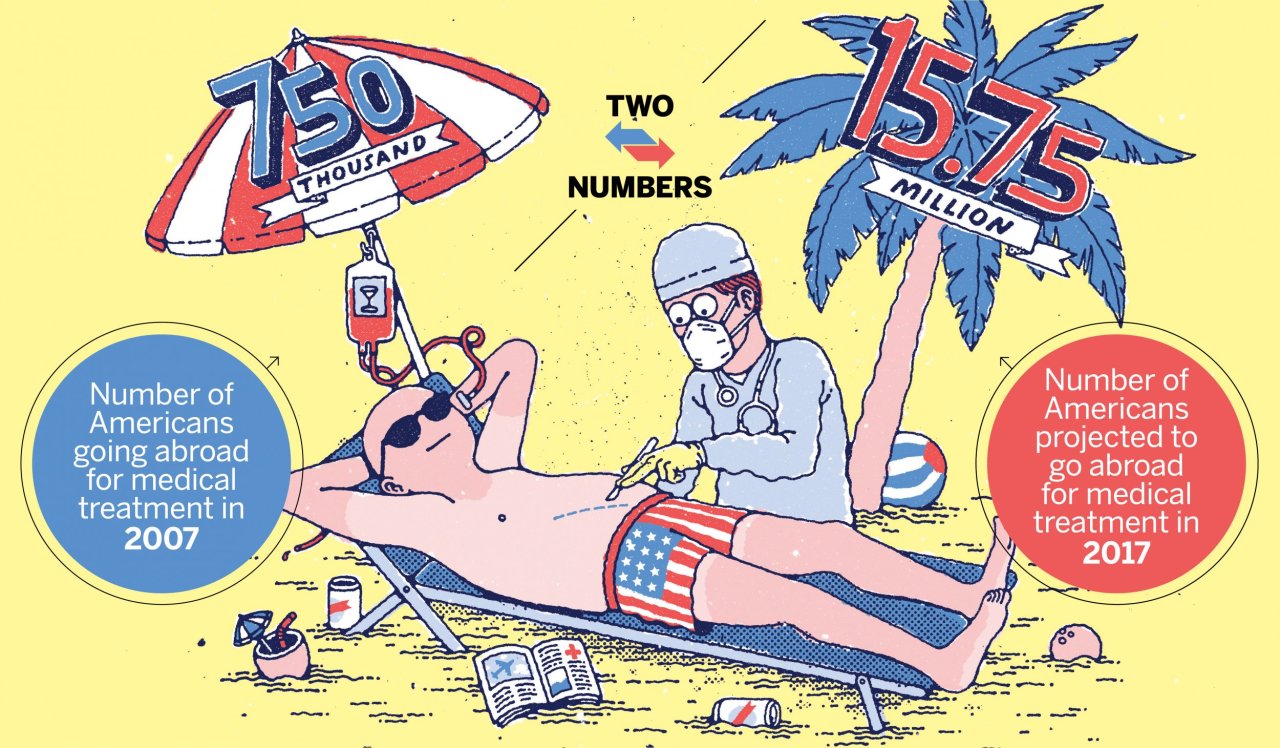If you're thinking of a trip to India, you may imagine the majesty of the Taj Mahal, the thrill of an elephant ride or a chance to eat exotic curries. What you're probably not imagining is checking into a hospital for major surgery. Yet an increasing number of Americans are doing just that. Americans are choosing to travel to countries such as India, Thailand and Mexico, as well as European destinations such as Germany, for medical procedures. The reason is simple: money.
The World Health Organization (WHO) calls this medical tourism and forecasts the industry will grow as costs continue to rise in the U.S. for things like hip and knee replacements, back surgery and cosmetic work. In 2007, 750,000 Americans traveled abroad for medical treatment, according to the WHO, which projects that almost 16 million Americans will travel abroad for treatment by 2017. There's a lot of money at stake. The WHO estimates that in 2017, $373 billion or more will flow out of the U.S. to foreign health care providers.
Health care providers abroad are already competing for the American medical tourism market. For example, a group called German Surgery helps individuals find the right hospitals and doctors for medical procedures and works with U.S. health insurers to extend coverage for treatment in Germany. "We can provide both affordable and high-quality health care, and our primary focus is on assisting patients from abroad in all aspects of their medical travel, from the point they initially contact us until they depart from Germany," said Frank Rothmaier, general manager of TheBioTechPanel GmbH, a Munich-based company that owns German Surgery. He estimates that a total hip replacement, typically costing anywhere from $50,000 to $100,000 in the U.S., would cost an American patient 30 to 60 percent less in Germany.
U.S. health insurers are starting to take notice. Some have initiated programs, such as United Group in Florida, which promotes medical tourism to members of self-funded health plans for treatment at hospitals in India and Thailand. Even taking into account the airfare and accommodations, the cost savings can be significant. For instance, the WHO estimates that heart bypass surgery in the U.S. costs $113,000, compared with $10,000 in India and $13,000 in Thailand.
So the next time you're planning an overseas vacation, keep in mind what surgeries you need done. Your lifelong goal of seeing the Taj Mahal might be closer than you think.


























